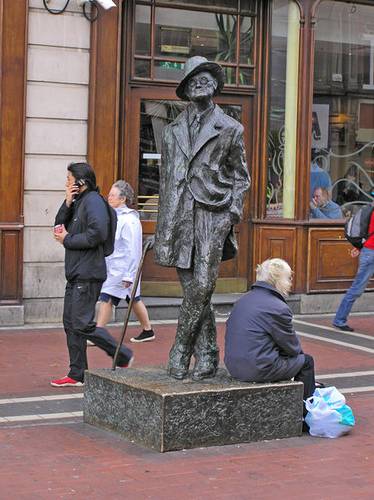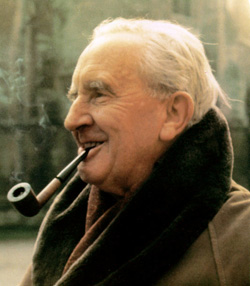Jonathan Swift liked to compose “Latin puns” — stanzas of nonsense Latin that would render English when spoken:
Mollis abuti,
Has an acuti,
No lasso finis,
Molli divinis.
Omi de armis tres,
Cantu disco ver
Meas alo ver?
Read that aloud and you’ll hear:
Moll is a beauty,
Has an acute eye,
No lass so fine is,
Molly divine is.
O my dear mistress,
I’m in a distress,
Can’t you discover
Me as a lover?
In a later letter, Swift wrote:
I ritu a verse o na molli o mi ne,
Asta lassa me pole, a l(ae)dis o fine;
I ne ver neu a niso ne at in mi ni is;
A manat a glans ora sito fer diis.
De armo lis abuti hos face an hos nos is
As fer a sal illi, as reddas aro sis;
Ae is o mi molli is almi de lite;
Illo verbi de, an illo verbi nite.
I writ you a verse on a Molly o’ mine,
As tall as a May-pole, a lady so fine;
I never knew any so neat in mine eyes;
A man, at a glance or a sight of her, dies
Dear Molly’s a beauty, whose face and whose nose is
As fair as a lily, as red as a rose is;
A kiss o’ my Molly is all my delight;
I love her by day, and I love her by night.
See also this verse.





